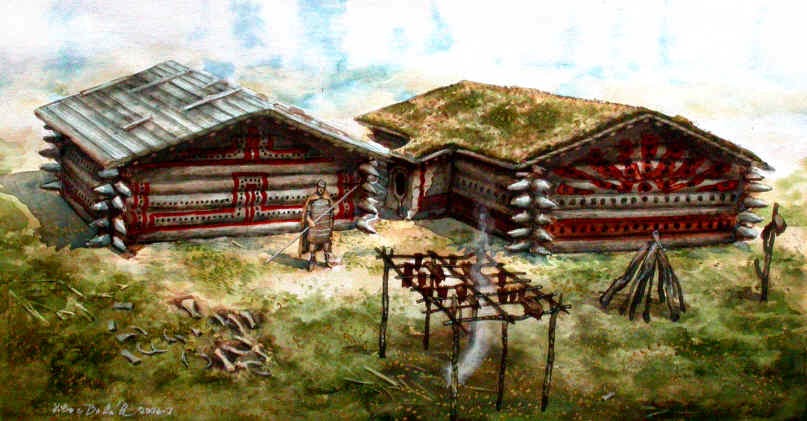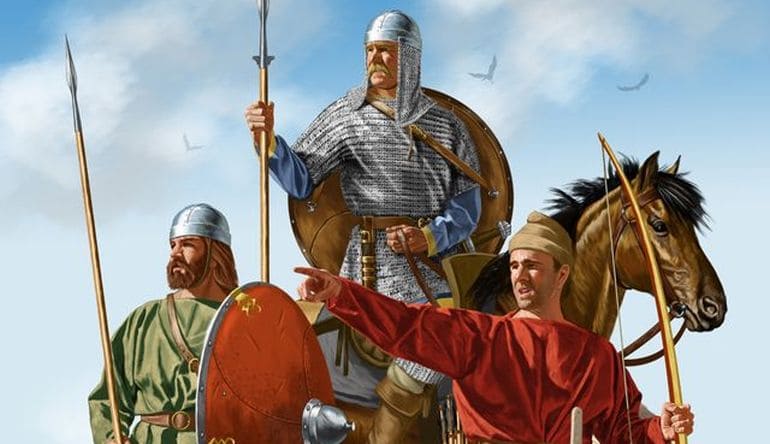Deep Time, if pondered, produces a profound sense of temporal vertigo unlike anything. When we speak of events 20, 30, 40.000 years ago, the numbers scarcely register.
A man, gazing out from a hill 40kya, would have still *30.000 years* to go before even the end of the Ice Age.
A man, gazing out from a hill 40kya, would have still *30.000 years* to go before even the end of the Ice Age.

Consider the stories we tell set in the "far future". Most of these take place only as far as the 3rd or 4th millenniums. Even such works as Warhammer 40k, set in an almost incomprehensibly distant future, is closer to the present than the first modern humans to enter Europe. 





We popularly envision "cave men", or even a more nuanced notion of "Palaeolithic people" as essentially one culture, one way of life. Yet even within the Lascaux caverns, the distance in time between the first & last paintings was maybe 100x that between Rembrandt and Picasso. 

The dizzying truth is that we cannot grasp & classify the ancient past. Not really. We can make vague groupings of styles of flint technology, but even these frequently span temporal intervals many times that of Caesar and Napoleon. 



There is no use in talking even of such things as "life in Doggerland" - there was a Doggerland almost coated in glaciers, when only a small plain of tundra lay bare in the south, and a Doggerland of rich steppe, and a Doggerland of marsh and forest. 100 landscapes, 1000 cultures 

There were people 28,000 years ago who found scraps of artifacts and walls of paintings almost as ancient and foreign to them as they are to us. There were cultures that rose and fell in spans of centuries that factor in modern studies only as the decimal-points of dates. 





I sometimes visualise this vertigo by thinking of Google Maps and the satellite view. Then I try to picture the same landscape as it must have looked 6000 years ago - no towns, no roads, no fields, no divisions, no borders. The same hills & shores, yet... nothing visibly human. 



• • •
Missing some Tweet in this thread? You can try to
force a refresh






















